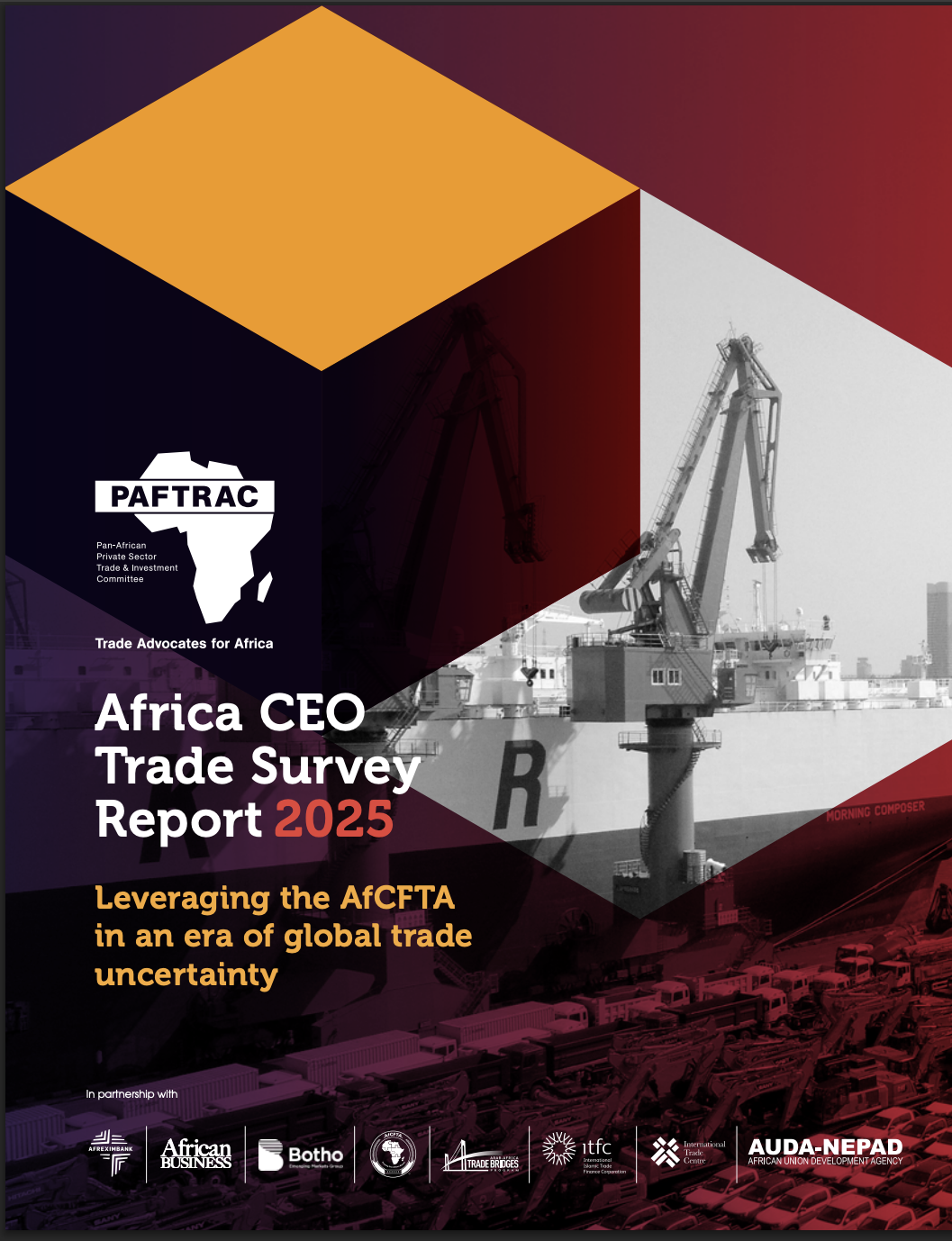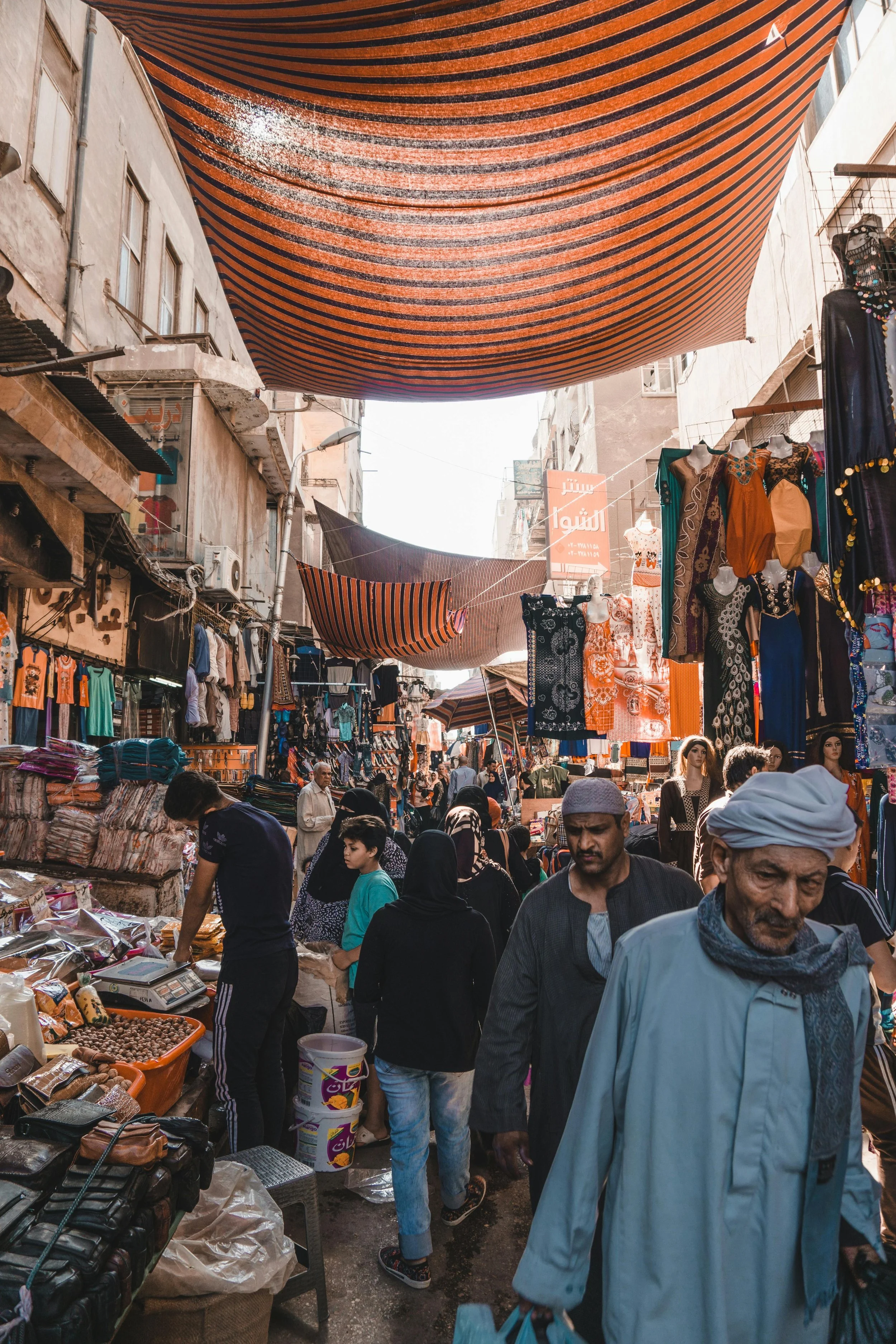
topic
Government
Affairs
—
With expertise across 20+ emerging markets, Botho’s geopolitical and operational insights shape effective development. For over two decades, we have helped governments and industries advance political and regulatory conditions to enhance commercial success.
We help our clients interpret and shape policies, identify new investment opportunities, and develop strategic partnerships and public affairs strategies to advance business goals.
Recent publications
Botho, in partnership with African Business magazine, the AfCFTA Secretariat, Afreximbank, AUDA-NEPAD, the International Islamic Trade Finance Corporation, and the International Trade Centre, is pleased to announce the launch of the fifth edition of the annual PAFTRAC Africa CEO Trade Survey Report for 2025.
This year’s report highlights where the African Continental Free Trade Area (AfCFTA) is gaining traction, and where bottlenecks still block scale.
African countries produce roughly 6% of the world’s cotton, yet local apparel producers source more than 90% of their yarn and fabric from outside the continent. This reliance on imports and lack of local value chains, combined with infrastructural barriers, drives up production costs and limits the scaling of African fashion. With the expiration of AGOA, the need to strengthen local and regional value chains has become even more urgent. Read this piece to explore the key value chain gaps limiting Africa’s fashion industry.
It’s not just the fashion industry that needs localized investment—sports do too, including Africa’s most popular game, football. East Africa is gearing up for AFCON 2027, with Kenya, Uganda, and Tanzania investing in major stadium projects. The real impact, however, will come when these venues are paired with year-round grassroots programs. Read more on how youth leagues, coach education, and scouting can turn “concrete” into talent and packed stands.
Africa shoulders the world's largest displacement burden, hosting 45.7 million forcibly displaced persons amid surging conflicts in Sudan, the Democratic Republic of the Congo, and Somalia. Yet, competitive funding models, conflicting development mandates and fragmented data sharing inflate program costs by 20-30%, duplicate efforts, and lock communities into dependency, stifling self-reliant economic pathways.
Emerging economies, particularly in Africa, face a $1.3 trillion annual development financing gap, with rising debt service obligations forcing governments to prioritize creditors over citizens. This unsustainable system has perpetuated cycles of dependency and underdevelopment. The creation of the Confederal Bank for Investment and Development (BCID) by the Sahel nations presents a transformative alternative. Funded by tax revenue, BCID offers long-term, counter-cyclical investments that support infrastructure and economic stability. By mobilizing dormant capital and de-risking private sector involvement, BCID can reshape development finance in the Sahel and beyond, breaking the chains of financial dependency and fostering sustainable growth.
Emerging economies, particularly in Africa, face a $1.3 trillion annual development financing gap, with rising debt service obligations forcing governments to prioritize creditors over citizens. This unsustainable system has perpetuated cycles of dependency and underdevelopment. The creation of the Confederal Bank for Investment and Development (BCID) by the Sahel nations presents a transformative alternative. Funded by tax revenue, BCID offers long-term, counter-cyclical investments that support infrastructure and economic stability. By mobilizing dormant capital and de-risking private sector involvement, BCID can reshape development finance in the Sahel and beyond, breaking the chains of financial dependency and fostering sustainable growth.






